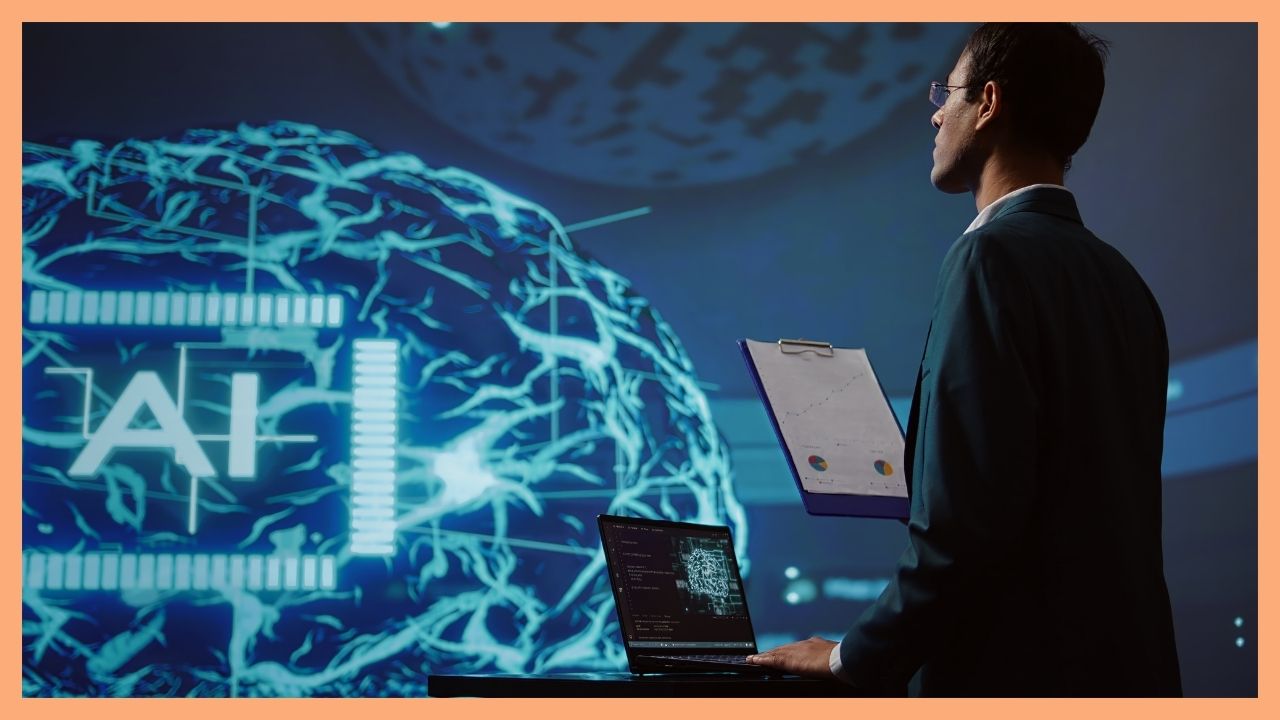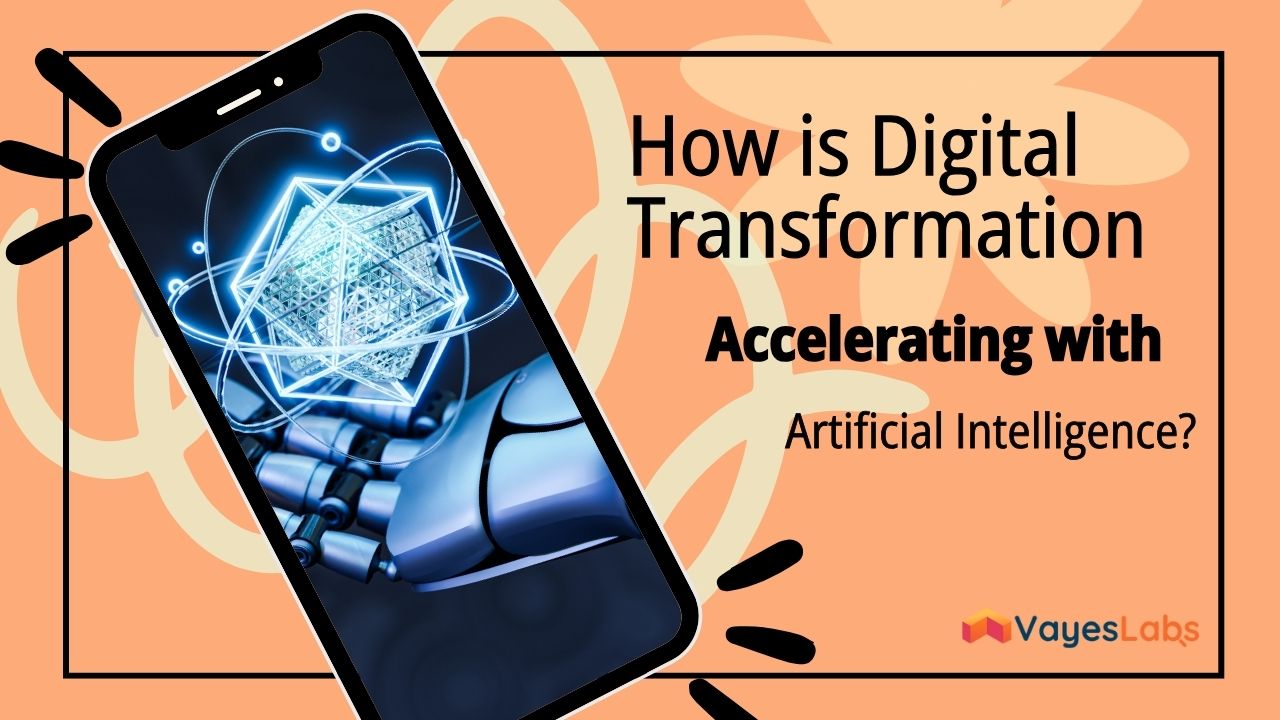Table of Contents
-
What Are Artificial Intelligence and Digital Transformation?
-
The Role of Artificial Intelligence in Digital Transformation
-
Artificial Intelligence’s Contributions to Digital Transformation in 2025
-
Industries Transformed by Artificial Intelligence
-
Challenges in Artificial Intelligence Applications
-
The Future of Digital Transformation with Artificial Intelligence
Artificial intelligence (AI), one of the most transformative technologies of our time, is accelerating digital transformation processes. Businesses are leveraging artificial intelligence to optimize operations, enhance customer experiences, and gain a competitive advantage. The year 2025 will mark a period where AI’s impact on digital transformation becomes even more pronounced. This technology enables businesses to become more efficient, innovative, and customer-focused.
Artificial intelligence offers unique opportunities in areas such as data analytics, automation, and personalization. From retail to healthcare, manufacturing to finance, numerous industries are reshaping their business models with AI’s capabilities. So, how is artificial intelligence accelerating digital transformation, and how can businesses benefit from this technology?
What Are Artificial Intelligence and Digital Transformation?
Artificial intelligence enables machines to perform complex tasks by mimicking human-like intelligence. With subfields like machine learning, natural language processing, and image recognition, this technology transforms businesses’ data analytics and decision-making processes. On the other hand, digital transformation involves businesses modernizing their processes, customer experiences, and operations using technology.
When artificial intelligence and digital transformation combine, businesses can develop more efficient processes, personalized customer experiences, and innovative business models. For example, AI-powered systems can analyze customer data to offer personalized recommendations or detect potential errors in manufacturing processes.
Data Analytics: AI analyzes large datasets to provide businesses with accurate insights.
Automation: Repetitive tasks are automated using AI tools.
Customer Experience: AI enhances customer satisfaction by delivering personalized services.
Innovation: AI enables businesses to develop new products and services.

The Role of Artificial Intelligence in Digital Transformation
Artificial intelligence has become a cornerstone of digital transformation, enabling businesses to increase efficiency, reduce costs, and develop customer-centric strategies. The key roles of AI in digital transformation include:
Data Processing: AI processes large datasets quickly, delivering meaningful insights to businesses.
Automation: Automation in business processes reduces human errors and boosts efficiency.
Personalization: AI analyzes customer behavior to deliver personalized experiences.
Predictive Analytics: AI predicts future trends, enabling businesses to make strategic decisions.
For example, an e-commerce platform can use artificial intelligence to analyze customer habits, optimize inventory management, and increase sales.
Artificial Intelligence’s Contributions to Digital Transformation in 2025
In 2025, artificial intelligence will further accelerate digital transformation processes. Here are AI’s key contributions in 2025:
Advanced Automation: AI will automate complex processes, enabling businesses to save time and costs.
Hyper-Personalization: AI will create hyper-personalized marketing campaigns by analyzing customer data.
Intelligent Decision-Making: AI will support more accurate decisions through predictive analytics.
Sustainability: AI will optimize energy consumption, contributing to sustainable business models.
For example, an energy company can use artificial intelligence to analyze energy consumption data and develop eco-friendly solutions.
Industries Transformed by Artificial Intelligence
Artificial intelligence is accelerating digital transformation across various industries, reshaping business models. Here are some industries transformed by AI:
Retail: AI analyzes customer habits to offer personalized recommendations and optimize inventory management.
Healthcare: AI improves medical imaging and diagnostics, enhancing patient care.
Manufacturing: AI-powered predictive maintenance reduces production errors.
Finance: AI is used for fraud detection and risk analysis.
For example, in healthcare, artificial intelligence analyzes patient data to develop early diagnosis systems, speeding up treatment processes.
Challenges in Artificial Intelligence Applications
Artificial intelligence in digital transformation offers significant opportunities but also comes with challenges. The main challenges businesses face include:
Cost: Developing and implementing AI systems can require high costs.
Data Quality: AI’s effectiveness depends on high-quality data.
Skill Shortages: Finding qualified personnel to manage AI technologies can be difficult.
Ethical Concerns: The ethical use of AI and data privacy issues are prominent.
Integration: Integrating AI systems with existing infrastructure can be complex.
To overcome these challenges, businesses should develop change management strategies, train employees, and adhere to ethical standards.
The Future of Digital Transformation with Artificial Intelligence
The year 2025 will be just a starting point for artificial intelligence in digital transformation. In the future, AI technologies will evolve further, enabling businesses to develop more innovative and customer-centric solutions. For example, artificial intelligence will enhance customer interactions through virtual assistants in metaverse platforms. Additionally, AI’s sustainability-focused applications will help businesses reduce their environmental impact.
Businesses should prepare for their artificial intelligence and digital transformation journey by developing strategic plans, investing in technology, and enhancing employees’ digital skills. Those that take these steps will gain a competitive advantage in 2025 and beyond. Artificial intelligence is not just a tool but a catalyst for businesses’ long-term success.
For more information and to start your artificial intelligence and digital transformation journey, contact us.




